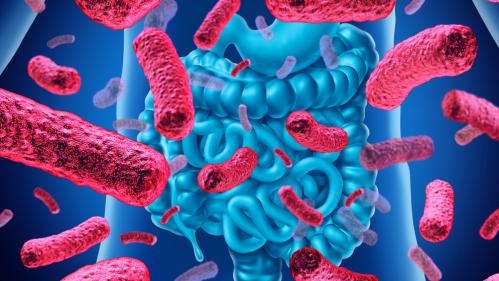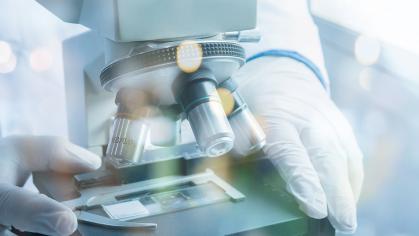Rutgers Researcher Invents Microbiota Formula to Help High Risk Patients Fight COVID-19

Clinical trial approved by the FDA to start in February
A Rutgers scientist has invented an early treatment for COVID-19 to prevent severe complications and hospitalizations in patients with prediabetes or diabetes mellitus using a novel ecological approach focused on managing the gut microbiota.
The formula NBT-NM108, created by researcher Liping Zhao, received Investigational New Drug (IND) status from the Food and Drug Administration (FDA) in record time to start Phase 2a clinical trial. This Phase 2a trial will recruit patients with prediabetes or diabetes who have tested positive for coronavirus or are waiting for their test results and are within no more than seven days after showing their first COVID-19-like symptoms.

“COVID-19 patients with pre-existing conditions such as obesity and type 2 diabetes suffer three to four times higher mortality rate than the average patient population,” said Zhao, professor and Eveleigh-Fenton Chair of Applied Microbiology of the Department of Biochemistry and Microbiology at Rutgers School of Environmental and Biological Sciences. “Overgrowth of opportunistic pathogens in the gut of diabetic or pre-diabetic patients may drive the more severe form of COVID-19. Such pathogens can contribute to the cytokine storm and sepsis, which are the major causes of mortality in these high-risk patients.”
Previous studies by Zhao showed that a select group of beneficial bacteria can be promoted by proper microbiome nutrition in the gut of patients with type 2 diabetes. When this group was restored to dominate the gut, pathogens were reduced to low levels. Analogous to the tall trees for a forest, this group was named the “Foundation Guild” of the gut ecosystem because it works as the foundation species for structuring and stabilizing a healthy gut microbiota.
According to Zhao, NBT-NM108 will be tested in this trial for its capacity to promote the Foundation Guild bacteria that can diminish opportunistic pathogens in the gut of the COVID-19 patients. A reduction of opportunistic pathogens may lead to decreased levels of inflammation and reduced risk for complications such as bacterial sepsis. NBT-NM108 aims at restoration of a healthy gut microbiota not targeting the virus itself.
“Controlling the gut microbiota in a way that doesn’t allow the overgrowth of pathogens in the gut could become a very important component of the COVID-19 care,” added Zhao.
The participants for the clinical trial will be recruited by the University of South Florida as part of a collaboration and partnership with Rutgers. The day-to-day measurements and samples will be handled by Liping Zhao’s Lab at Rutgers through a patient managing platform. The early treatment of the gut microbiota with Zhao’s formula will be a home-based intervention for patients with mild to moderate symptoms.
This clinical trial is sponsored by a Rutgers startup, Notitia Biotechnologies, a next-generation microbiome biotherapeutic company that unlocks the data from the gut microbiome to develop innovative products for patients and the general public. The company uses a proprietary reference-free Foundation Guild R&D platform to discover the novel players in the gut microbiome and create products focused on the ecological restoration of the gut ecosystem.
“We have the vision that everyone can live a long and healthy life by keeping our gut microbiome to the healthiest possible status for the longest possible time. Notitia’s mission is to help everyone achieve a healthy gut microbiota by protecting or restoring the Foundation Guild of the gut microbial forest,” said Jeffery Zhao, co-founder and CEO of Notitia Biotechnologies.
The first round of data may be available by March or April.



